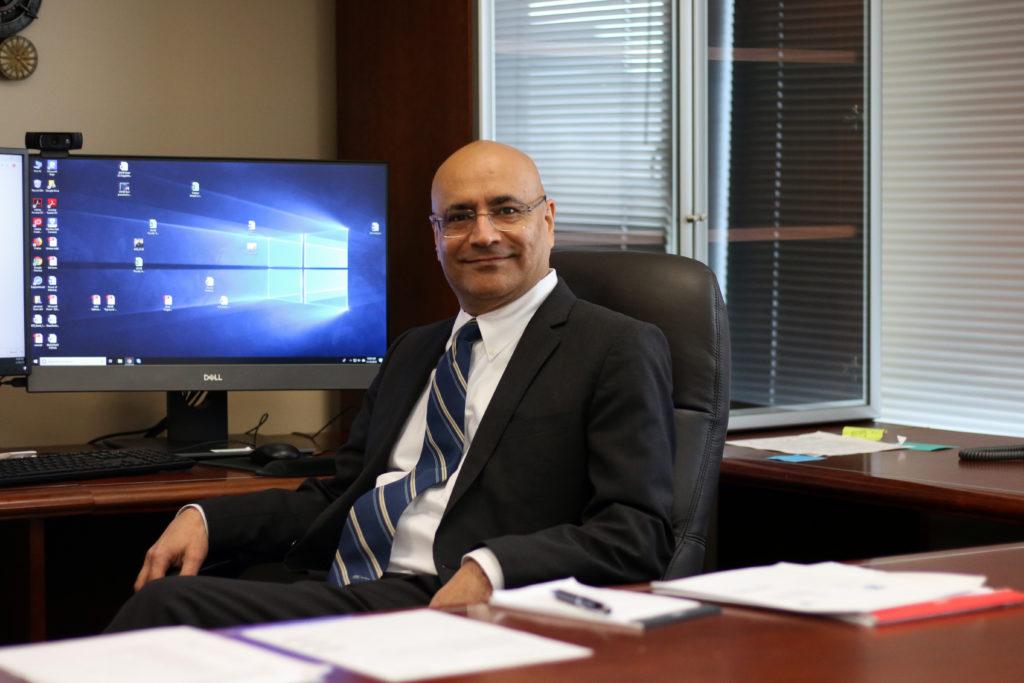The School of Business has partnered with a university in France to provide French students with the opportunity to study abroad and gain an international perspective on business.
Under the agreement, Grenoble École de Management in Grenoble, France, will offer at least 20 graduate students the ability to study for a semester abroad at GW, and the business school will host visiting faculty from the French university to teach classes. Officials said the partnership will help the University build connections with international partners and enrich the experiences of business school students.
Bryan Andriano, the business school’s executive director of global and experiential education and co-director of the new academic program, said the school’s previous relationship with GEM and its stature in the international business discipline motivated administrators to design the program.
GW students are currently able to enroll in an existing program to study abroad at GEM, he said.
“GWSB’s strength in the field of international business, reputation for excellence in student support for visiting international students and complimentary academic offerings were attractive to GEM,” Andriano said in an email.
He said officials from the business school will create a competitive application process to determine which students from GEM will participate in the program and enroll at GW, adding that they will have complete access to the business school’s programming and facilities.
Business school officials plan to host the first cohort of 20 or more GEM students and two visiting faculty members in spring 2021, according to a January message to the business school by Dean Anuj Mehrotra.
Andriano said students from GEM’s master’s program in management will take courses designed “exclusively” for the cohort taught by the visiting faculty from France.
“This new partnership facilitates global mobility at GWSB, deepens its network of partner schools and allows it to continue to diversify the perspectives in its classrooms,” he said.
Andriano said he will lead the partnership with Martin Zahner, the director of international affairs at GEM.
Zahner said officials from GEM have established transcontinental programs with universities from several countries like China and the United Kingdom, and the partnership with GW is an expansion of the current offerings.
“To make it possible, you need two enthusiastic teams, one in each institution, which is definitely the case,” he said in an email.
Zahner said discussions about the program began in late 2018, and Patrick O’Sullivan, GEM’s academic director for transcontinental programs, will finalize the curriculum for the selected GEM students in D.C.
Zahner added that the School of Business is reputed for its “strong expertise” in geopolitics, and he expects the semester in the District to be among “the most memorable moments” for participating GEM students in their academic careers.
“The fact that D.C. is hosting lots of U.S. governmental authorities and international institutions will allow the students to observe closely the decision-making process and the direct worldwide impacts,” Zahner said.
International education experts said the academic partnership is a way for GW to promote its reputation globally and enrich student experiences by pairing GW students with people from diverse backgrounds.
Erich Dietrich, a professor of international education at New York University, said academic exchange programs between universities can help promote stronger and wider-ranging faculty research and expose students to international perspectives in the classroom.
“These partnerships can be really enriching for students, not only for students who go on the exchange but to other students in the program who don’t go on the exchange because they are exposed to a group of students who are from very different kinds of educational backgrounds,” he said.
Dietrich said the number of exchange programs between universities has increased in the past decade, but pairing academic institutions can be challenging because the universities need to have the same goals and similar academic rankings.
“Institutions really have an investment in trying to find the right match,” he said. “First of all, they have to have students of the same caliber.”
He said universities are motivated to pursue international academic partnerships because they serve as a prominent display of a university’s international connections, a major draw for potential students.
“You can promote the fact that you’re global, but you don’t just talk about it, you have real programs,” he said. “If it enhances the research output of the faculty, it can really enhance your reputation.”
William Gaudelli, the dean of the College of Education at Lehigh University, said international academic exchange partnerships give students opportunities to bolster their resumes and help them stand out when applying for jobs after graduation.
“There is an interest in employers hiring students that have the flexibility to work in another environment and in another context,” he said. “As the world becomes more interconnected, it is of value to students across the spectrum, regardless of age, to have experiences in other parts of the world and to learn inside out by encountering new perspectives.”








